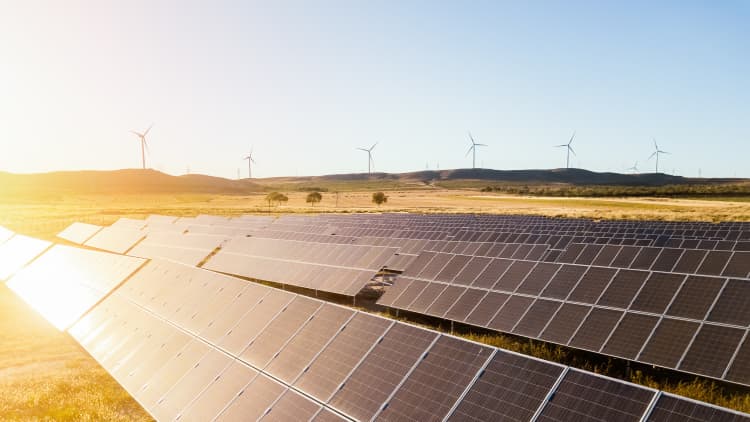
While sources such as solar and wind may be good for the planet, they do not promise a constant and predictable stream of power in the way that fossil fuels do.
Given this fact, if renewables are to become a crucial part of the planet's energy mix, they will need to rely on smart and intuitive energy storage systems.
In the U.S., California-based Stem is using artificial intelligence to help businesses store energy on a large scale.
The idea is to pair artificial intelligence (AI) with energy storage so that businesses and organizations can, according to Stem, "automate energy cost savings and protect against changing rates." Customers include major firms like Adobe Systems, Bed Bath & Beyond and Whole Foods Market.
"We build and operate the largest digitally connected network of intelligent energy storage solutions," Stem's CEO, John Carrington, told CNBC's "Sustainable Energy."
"It's all cloud-enabled and it's driven by our AI software platform that we call Athena," Carrington added, explaining that the company's technology offered businesses both flexibility and control when it came to their energy spend.
"We lower cost by storing electricity when it's affordable and using it later when costs are high, shifting energy away from the most expensive times of day," Carrington said.
Explaining the firm's model further, Stem's CTO Larsh Johnson said that it used AI to predict both a client's needs and the availability and cost of supply, including the sustainability of that supply.
This, Johnson added, enabled Stem to "match a customer's requirements with the availability of energy both from the grid and from any onsite renewable generation."
Looking at the bigger picture Daniel Mansson, an associate professor at the KTH Royal Institute of Technology in Stockholm, Sweden, offered his opinion on the benefits of using AI alongside renewable energy storage systems.
"The benefits will be when you have a lot of energy storage in the grid, there needs to be a lot of forecasting and modelling to maximize the power produced," he said.
"And to coordinate all the storage with all the renewable energy will be very difficult, so the artificial intelligence techniques can be a way of doing this in a more efficient manner," he added.




